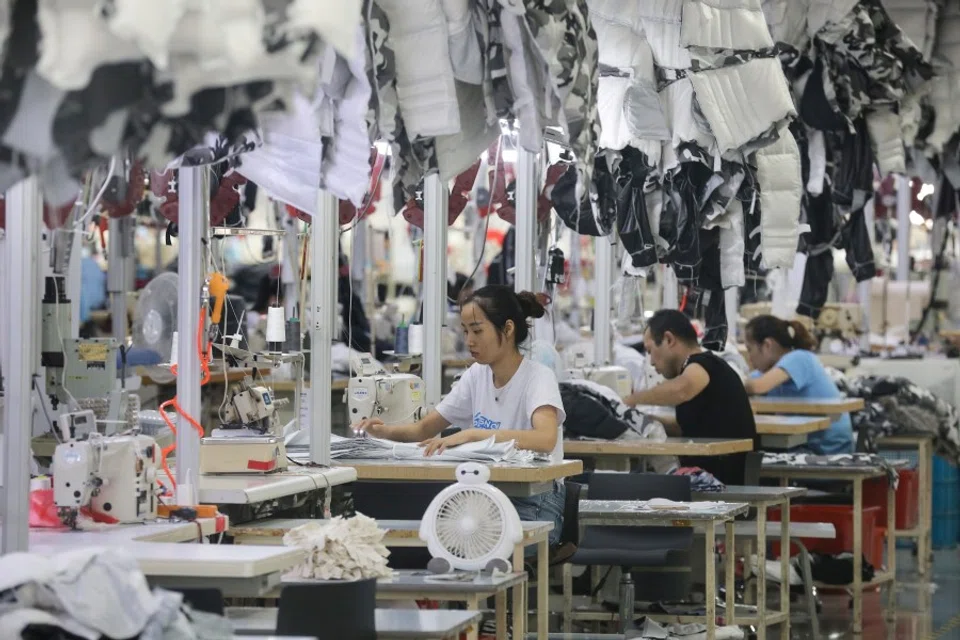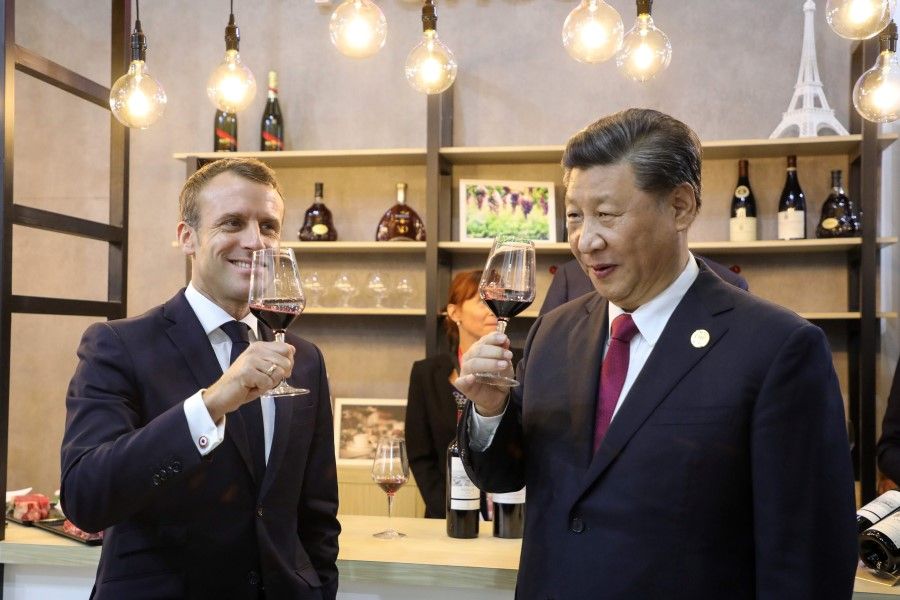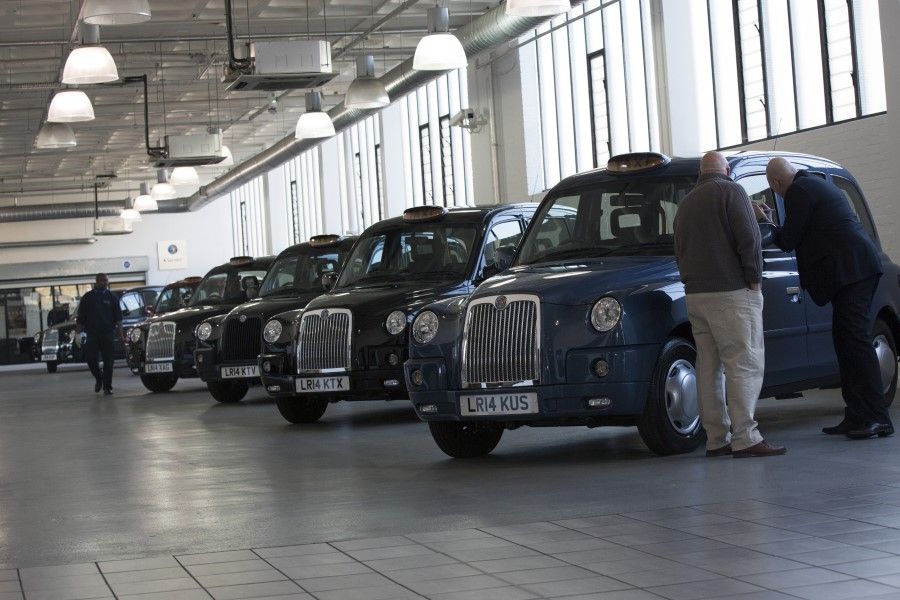Private enterprises in China feel the heat of government influence

Chinese entrepreneur Zhao Yong runs a sizeable training centre in a third-tier city in Jiangsu for several thousand students.
About three or four years ago, he suddenly saw a lot more of the local government officials in charge of the industry. The school also had to submit their training curriculum and go through inspections every 10 to 14 days, and was asked to install cameras in classrooms and upload videos to cloud services in real-time for the government department to review.
In addition, to boost industry communication, the local education authority added Zhao Yong and other heads of educational training organisations to a social media contact group. However, in Zhao's view, this is an added cost.
He said, "Previously we had very little contact with the authorities, but now, networking takes a lot of effort. Every two or three days, we have to get on the group and report what we've been doing."
Zhao, who has been in the training industry for nearly 20 years, is even more uneasy at the recent news that the Hangzhou Municipal Government has been deploying officers to offer companies "nanny services". He said, "Companies are naturally wary and defensive about government intervention. We always feel if the government sends people, that's not good."
Controversy over the "visible hand"
Last month in Hangzhou - where many private companies are found - the municipal government announced that 100 officers will be attached to 100 prominent companies for one year as "government affairs representatives", with well-known companies such as Alibaba, Geely, and Wahaha among the first to work with these officers.
This announcement coincides with Jack Ma stepping down as Alibaba chairman, and comes exactly one year after a huge debate in China over the rise of state-owned enterprises and the decline of private companies (guojin mintui, 国进民退). And for private companies, who are always sensitive to the relationship between the government and companies, this coincidental timing is making them uncomfortable. They question whether the government is extending a "visible hand" and interfering with companies' operations or running companies in place of entrepreneurs.

Following the controversy, Alibaba issued a statement that the arrangement would be a bridge for the private sector, and that there would be no intervention in operations. There was no public response from Geely and other companies.
Official media such as Hangzhou Daily - official newspaper of the Chinese Communist Party (CCP) in Hangzhou - subsequently published clarifications that the measures are not to have a "visible hand" in companies, but to have the government's role as a "runner" ingrained in the companies.
The article claims that the prerequisite to be a government affairs representative is being respectful of companies' wishes, and none of their functions includes them getting involved in the companies' decisions. They are to maintain a close and clean relationship of resolving concerns without interference, and resolving issues without causing disturbance.
A close and clean people-government relationship was one of the concepts brought up by Xi Jinping during the "Two Sessions" meeting on 4 March 2018. The aim is to get leadership cadres to be straightforward and sincere in interacting with private companies, and clean in their dealings.

Academics: Power of government representatives ill-defined
Professor Zhou Weilin of the China Centre of Economic Studies at Fudan University told Lianhe Zaobao that in terms of stepping up communication between the government and companies, if the officers on attachment can identify the companies' pressure points, the arrangement is a positive one.
...the main source of concern for many is the line of responsibility and authority of the government representative in actual operations.
In fact, Hangzhou is not the only place arranging for government representatives to connect with companies. Similar approaches have been tried in different forms in other areas.
Early this year, Hebi (鹤壁) city in Henan province sent a number of officials to act as "service managers" at private companies with growth potential, and help these private companies resolve difficulties and issues with productivity. Last November, Wenzhou city in Zhejiang province also initiated a "Cadres in Companies" campaign, pairing officials with local companies and putting them in charge of policy marketing, being their agent, following up on projects, troubleshooting, as well as monitoring and guardianship.
However, the main source of concern for many is the line of responsibility and authority of the government representative in actual operations. Prof Zhou said, "There has to be a clear line between whether it is management or service provision."
Another question is whether the good intention of resolving companies' worries and difficulties through human agency will turn into interference with the companies, especially when the authority and responsibility of the government representatives are not bound by law.
Professor Chen Zhiwu of the Asia Global Institute at the University of Hong Kong noted that each government representative may be different. Some may be more sympathetic to the companies, but it is also possible that some may want to introduce control and restrictions. In such an arrangement, there is room for each government representative to manoeuvre.
This time, the government is focusing on 100 prominent companies in Hangzhou, and there are questions whether this will lead to other private sector companies being squeezed out of business. Many feel that offering special treatment for selected companies rather than institutionalising corporate services, would not help create a good, fair corporate environment.
In private, the entrepreneurs this writer met admitted that there may be some business practices that do not stand up to scrutiny, and resistance to "nanny services" is also due to fear that unorthodox practices may be exposed.
Medical entrepreneur Hu Jianjun said, "No matter what the government's intent, private companies have their industry secrets. Once the authorities step in, a lot of things will be under supervision."
Zhao Yong also said frankly, "To some degree, the tax payments by private companies is less than perfect. There are some grey areas. Apart from being worried that those grey areas will shrink, people are also worried that one day, the authorities will find fault and get even."
Private companies have no sense of security
In the second half of last year, the controversy over the rise of state-owned enterprises and the decline of private companies caused major disturbance to the Chinese private sector. Nearly two months of debate only died down after the CCP repeatedly publicly supported private companies, and Chinese President Xi Jinping spoke in support of the private sector economy, emphasising that private companies and entrepreneurs are "one of us".
Going by the drama over Hangzhou's deployment of government officers to private companies, even the statements by senior officials are not enough to allay the worries of private companies. So what are China's private companies worried about? Why are they so anxious about any adjustments?
In his commentary in Lianhe Zaobao on 22 October, Professor Zheng Yongnian of the East Asian Institute at the National University of Singapore notes that while the legal environment is important to private companies, even more important is the ideological direction. While China has developed a true mixed economy, if there is a return of leftist ideology, private companies will become restless and uneasy.
...once the news broke about government officers being attached to private companies, some people interpreted it as the first step in local government taking control of private companies
Over the past few years, the signals from the authorities do not look good for private companies. Some entrepreneurs are worried if the emphasis on growing state-owned enterprises will squeeze out private companies, or whether using private or even foreign-funded companies to build up the CCP is going against the ethos of separating government and enterprise.
There are historical reasons why private companies are sensitive to ideological direction. Many entrepreneurs would still remember China's policies towards the private sector economy before its reform and opening up. And so, once the news broke about government officers being attached to private companies, some people interpreted it as the first step in local government taking control of private companies, and a prelude to building public-private enterprises.
As the main shareholder in a private medical company, Hu Jianjun admits that the biggest worry for many large private companies is whether the company still belongs to them after growth and expansion, particularly when over the past two years the authorities have taken over many private companies, including partially foreign-funded companies and the Anbang insurance group, which makes one worry for the future of large private companies.
In his view, the government's distrust for private companies has led to a low sense of security among these companies, and even leaves question marks about the "care and support" from the authorities.
For the sake of his business in China, Mr Hu holds a China passport, but his wife and children have emigrated. He said, "If there is no sense of security, even if the factory cannot be moved, the money and kids can leave."
Fair competition is a false proposition
In the past few years, the position of private companies in China is weakening. One clear example is where China's funds are flowing.
...it is common for financing costs of private companies to be two or three times that of state-owned enterprises with official backing.
As Nicholas Lardy of the Peterson Institute for International Economics wrote in his book The State Strikes Back: The End of Economic Reform in China, in 2012, 52% of financial loans in China went to private companies, while 32% went to state-owned enterprises. In 2016, those figures were 11% and over 80% respectively.
And although the authorities have been encouraging financial institutions to extend loans to small and medium private companies, many entrepreneurs told this reporter that it is common for financing costs of private companies to be two or three times that of state-owned enterprises with official backing.
There are also views that while the authorities emphasise the government's neutrality in dealing with private and state-owned enterprises, and there can be laws to state that both are equal, actual implementation is difficult because both have different political status and different degrees of support.

The idea of "fair competition" was a focal point during last year's discussion on the private sector economy, and the phrase appeared for the first time in a document from the central government.
However, to economists who advocate deeper reform of China's economic system, emphasising fair competition between private and state-owned enterprises is in itself a false proposition.
Prof Chen Zhiwu of the University of Hong Kong says any industry that includes state-owned enterprises cannot see fair competition, because state-owned enterprises are backed by the state while private companies are backed by private funds and entrepreneurs, and it is hard for both to be treated the same. He says, "If there is no fundamental reform, the problems faced by private companies will always be an issue."
Private companies face a more challenging environment
Some economists note that the current pressure faced by China's private sector is due to ideological factors linked with national policy, as well as changes in the macro-environment within and outside of China, and the fact that private companies are not sufficiently prepared for economic transformation.
This year, the authorities have rolled out various measures to try and restore the confidence of private companies, including slashing taxes and costs to help reduce the burden on companies. In the third quarter of this year, China's economy only grew 6%, the lowest in 27 years. In this context, in early October the State Council passed a law on improving the business environment. Clearly, the thinking is to support the economy by supporting the private sector.
Professor Gu Qingyang of the Lee Kuan Yew School of Public Policy at the National University of Singapore said the CCP is making a political stand on supporting the private sector economy, and the issue for private companies now is no longer the rise of state-owned enterprises and decline of private companies, but pressure from the changing environment and the difficulties of transformation.
He explained that China's economy is in transition between the old and new drivers, and it is difficult to find more economically efficient projects. In addition, the US-initiated trade war has thrown the global trade system into chaos. Private companies dependent on foreign trade have been directly impacted, and if there are gaps between operating principles and company systems and management, there will be bigger problems.
Prof Gu said, "Previously, it was easy for companies to turn a profit, and these problems did not show. But now, there is greater pressure from a changing environment."
China no longer has a cost advantage
Since China joined the World Trade Organisation (WTO), its strongest point of competitiveness has been its cost advantage, but this advantage has been weakening in the past few years.
A Zhejiang entrepreneur who declined to be named said a regular worker at his factory in Zhejiang earns about 6,000 RMB (S$1,158), about twice as much as 10 years ago. In comparison, manpower costs in Vietnam and other Southeast Asian countries are still at China's wages 10 years ago.
...the rise of state-owned enterprises and decline of private companies cannot be an excuse for private companies to explain away their own problems.
He observed that manufacturing is a small scale industry in Zhejiang, with intense competition in the same goods, low innovation, and insufficient investments. Once the cost advantage is lost, private companies will find it hard to transform.
This entrepreneur feels that it is unfair to attribute all the current problems faced by China's private companies to the disadvantages they meet in the system. He said, "Previously, the focus was on state-owned enterprises, and it was difficult for private companies to compete. But, the rise of state-owned enterprises and decline of private companies cannot be an excuse for private companies to explain away their own problems."
Prof Zhou Weilin of Fudan University agrees that with China's economic transformation, many private companies are not equipped to improve on quality and innovation. "Expanding productivity in the old way would lead to overproduction, but with no new direction. Some private companies are like a car in neutral gear, with no motivation."
However, he is optimistic in feeling that with domestic demand and external pressure, the climate for private companies is expected to develop positively.
Prof Zhou said: "If private companies are sensitive enough to the market, and have real technological skills and motivation to innovate, there is no need to worry too much... looking at private companies' contribution to China's employment and economy, there will be growth, even if it is not actively sought."
Prof Chen Kang on China and the US, who innovates better?
